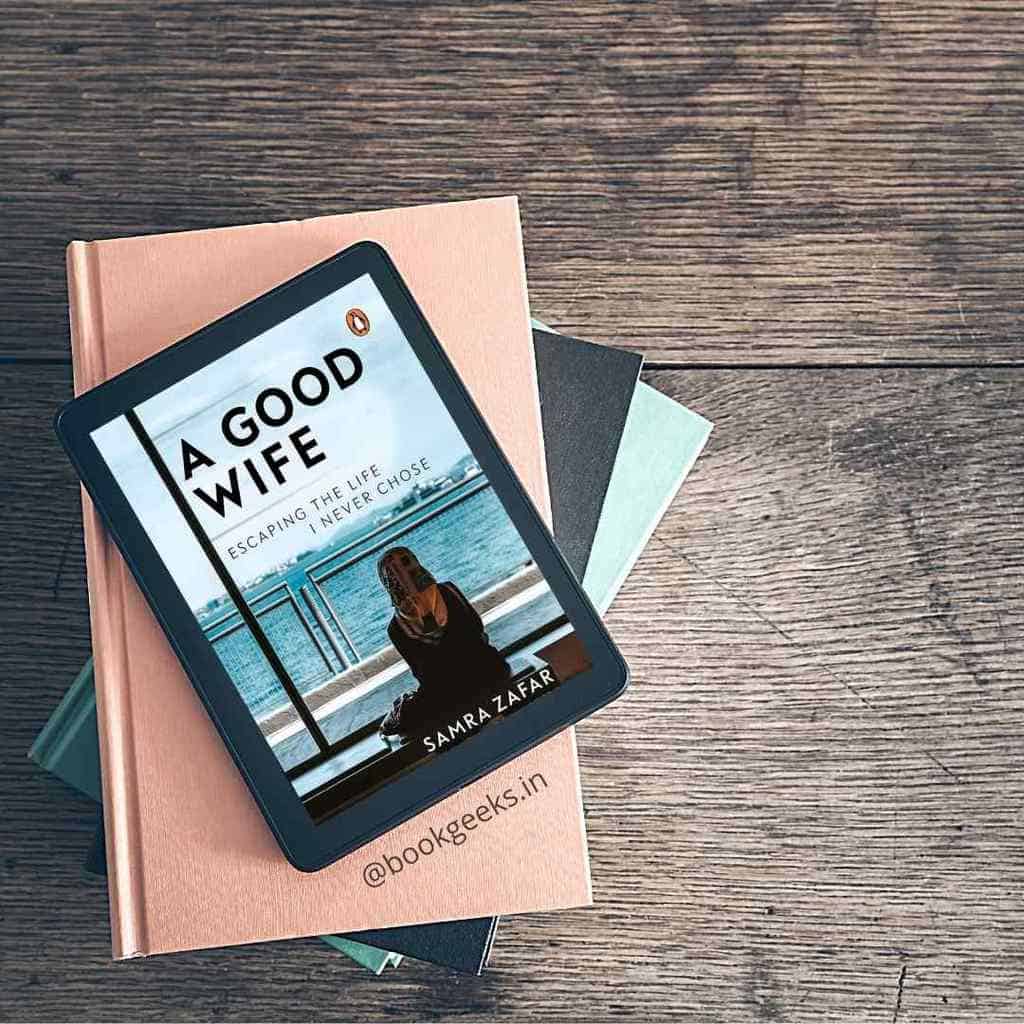RATING: 5/5
“While the shame of my failed marriage has been remarkably tenacious, as the years have passed my confidence has grown. Whenever that sort of negativity flickers through my mind, I remind myself that it is not what I really believe – it is only the remnant of flawed cultural conditioning.”
– Samra Zafar, A Good Wife: Escaping the Life I Never Chose
Introduction:
Samra Zafar is today a TEDx speaker, author, mother, master’s degree holder, and also a student. But at 17, she was a reluctant and confused child bride.
Plot:
A Good Wife: Escaping the Life I Never Chose is a memoir of Samra’s survival through domestic violence. She was married off at 17 on the promise that she can pursue her higher studies in Canada at renowned universities. Excellent in academics and sports, she agreed to the marriage with the hope of a better education.
Pregnant soon after, she realized that her family only wanted a caretaker for the kids. They detested the idea of sending her outside so she worked from home and studied through correspondence. She did everything to be a good wife but she wasn’t. After twelve years of physical, mental, and emotional violence, Samra divorced her husband.
My musings:
The book makes you ponder upon some very important questions – how similar Samra’s story is to the women around us. How similar are we to Samra’s relatives? How many women like her are still holding on to such marriages?
I am glad Samra wrote a book that helps us recognize what abuse is. We would love to believe that all families are rosy and bright until we see scars and bruises. But, mental and emotional abuse is equally wrong. Mental abuse doesn’t end with screams and shouts. It only waits for the right time to worsen.
The book also mirrors how one should be very, very cautious before entering a marriage merely based on someone’s words. Marrying early and unwillingly because the family assured them that they would “let her” study turned horrendous for Samra.
Characters:
Samra had extremely supportive parents who bolstered their four girls to study, play sports and be themselves. They were elated at the prospect of her studying further. But when she turned seventeen, they gave in to the fear that if she grew older, good matches wouldn’t come. Her mother, like many others, told her to adjust and compromise so as to save her marriage. She compared it with her own marriage and told how Samra had it easier. But when her in-laws crossed all their limits and Samra chose to divorce her husband, her mother stood by her.
When Samra joined the university and spoke to the counsellor and others, they encouraged her to give voice to her experience. Many a time before, Samra almost dialled the police. What stopped her was the fear of losing child custody to her husband. She was still a student then, with no place to stay or means to live. Her friends at the university guided her on how she could fight for divorce with child custody.
Writing style:
The English is very easy. It is suitable for everyone.
What I learnt:
The biggest lesson for women from Samra’s struggle is independence. The story emphasizes the importance of education for girls at all times. Samra had the guts to leave her marriage with two kids only because she had perfect grades. Women who aren’t educated continue in abusive marriages for the financial needs of their children. Despite everything going haywire in her house, Samra toiled to keep her grades flying and business (from home) running.
Who can read it?
- Anyone looking for inspiration, strength, and courage.
- Anyone who feels that their fate is bad and nothing can be done.
- Anyone who has already read or heard about Samra and wants to know her journey in detail.
Can’t wait to read it? Buy your copy of A Good Wife: Escaping the Life I Never Chose using the link below.
